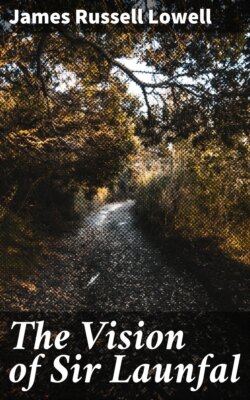Читать книгу The Vision of Sir Launfal - James Russell Lowell - Страница 13
На сайте Литреса книга снята с продажи.
PUBLIC LIFE.
ОглавлениеTable of Contents
It was at the close of this period, when he had done incalculable service to the Republic, that Lowell was called on to represent the country, first in Madrid, where he was sent in 1877, and then in London, to which he was transferred in 1880. Eight years were thus spent by him in the foreign service of the country. He had a good knowledge of the Spanish language and literature when he went to Spain; but he at once took pains to make his knowledge fuller and his accent more perfect, so that he could have intimate relations with the best Spanish men of the time. In England he was at once a most welcome guest, and was in great demand as a public speaker. No one can read his dispatches from Madrid and London without being struck by his sagacity, his readiness in emergencies, his interest in and quick perception of the political situation in the country where he was resident, and his unerring knowledge as a man of the world. Above all, he was through and through an American, true to the principles which underlie American institutions. His address on Democracy, which he delivered in England, is one of the great statements of human liberty. A few years later, after his return to America, he gave another address to his own countrymen on The Place of the Independent in Politics. It was a noble defense of his own position, not without a trace of discouragement at the apparently sluggish movement in American self-government of recent years, but with that faith in the substance of his countrymen which gave him the right to use words of honest warning.
The public life of Mr. Lowell made him more of a figure before the world. He received honors from societies and universities; he was decorated by the highest honors which Harvard could pay officially; and Oxford and Cambridge, St. Andrews and Edinburgh and Bologna, gave gowns. He established warm personal relations with Englishmen, and, after his release from public office, he made several visits to England. There, too, was buried his wife, who died in 1885. The closing years of his life in his own country, though touched with domestic loneliness and diminished by growing physical infirmities that predicted his death, were rich also with the continued expression of his large personality. He delivered the public address in commemoration of the 250th anniversary of the founding of Harvard University; he gave a course of lectures on the Old English Dramatists before the Lowell Institute; he collected a volume of his poems; he wrote and spoke on public affairs; and, the year before his death, revised, rearranged, and carefully edited a definitive series of his writings in ten volumes. He died at Elmwood, August 12, 1891. Since his death three small volumes have been added to his collected writings, and Mr. Norton has published Letters of James Russell Lowell, in two volumes.
